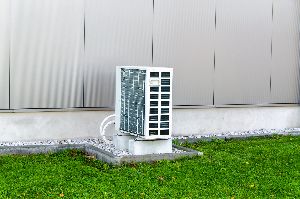4 Frequently Asked Questions About Heat Pumps

During the winter, homeowners often notice a sharp spike in their energy bills from running their furnace constantly. This can get worse as the system gets older and less efficient. If you're thinking about getting a replacement, look into heat pumps. While lesser-known, these HVAC systems offer several advantages over the competition. The guide below explains more about how they operate.
A Guide to Heat Pumps
What does a heat pump do?
The name is a bit misleading since a heat pump can keep you comfortable all year long. With an air-to-air heat pump, refrigerant transfers heat from outside air into your home in the winter. Geothermal systems collect heat from the ground to bring indoors. In the summer, the refrigerant takes heat from the house and releases it outside or underground to keep you comfortably cool.
How are these systems different than traditional furnaces and air conditioners?
Gas furnaces warm air by igniting fuel within the burner. A similar process occurs in electric furnaces, where air is pulled through a heat exchanger, warmed by electric heating elements. The thermostat samples the room and delivers bursts of heat until the temperature reads at the desired levels. By contrast, a heat pump provides steady warmth or cooling that some people find preferable.
Traditional furnaces and air conditioners perform one job each, meaning they don't run all year. Partially due to this, furnaces can often last 15 to 20 years or more. Heat pumps traditionally have a life span of 10 to 15 years, about the same as the average air conditioner. However, because they draw on heat that already exists instead of creating it, heat pumps are more energy-efficient, meaning that you will save money on your utility bills.
How energy-efficient are they?

Both heat pumps and traditional HVAC systems are judged by their Energy Efficiency Rating (EER), which varies wildly. However, air-source heat pumps that operate as split systems and score 12.5 or over qualify for tax credit benefits. Geothermal systems come in many varieties with different qualifications. However, generally speaking, heat pumps beat furnaces and air conditioners in terms of energy transferred versus consumed.
Can a heat pump heat and cool my entire home?
An outdoor condenser or condensers are usually connected to indoor air handler units situated throughout your home. This should work as powerfully as central heating or AC. It should also allow for more even heating of rooms compared to standard options that involve sending heated air through ducts around the house where the warmth can be lost along the way.
Whether you want a heat pump system or you're still debating what would be best for your home, call the HVAC experts at Absolute Comfort Heating and Air Conditioning in Lincoln, NE, at (402) 430-3959 to take advantage of their more than 30 years of expertise. They can help you weigh the pros and cons, as well as install and maintain your system. Visit them online to learn more about their services.
About the Business
(5 reviews)
Have a question? Ask the experts!
Send your question

